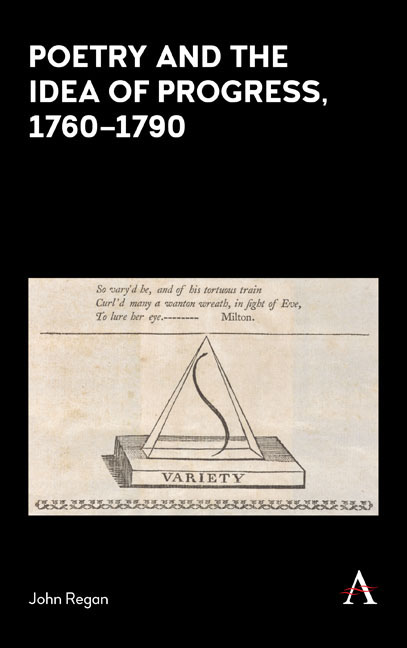Book contents
- Frontmatter
- Contents
- List of Figures
- Acknowledgements
- Introduction
- 1 Progress by Prescription
- 2 Thomas Sheridan and the Divine Harmony of Progress
- 3 ‘There Is a Natural Propensity in the Human Mind to Apply Number and Measure to Every Thing We Hear’: Monboddo, Steele and Prosody as Rhythm
- 4 ‘[C]ut into, distorted, twisted’: Thomas Percy, Editing and the Idea of Progress
- 5 ‘Manners’ and ‘Marked Prosody’: Hugh Blair and Henry Home, Lord Kames
- Afterword: Rude Manners, ‘Stately’ Measures: Byron and the Idea of Progress in the New Century
- Conclusion
- Notes
- Bibliography
- Index
4 - ‘[C]ut into, distorted, twisted’: Thomas Percy, Editing and the Idea of Progress
Published online by Cambridge University Press: 21 June 2018
- Frontmatter
- Contents
- List of Figures
- Acknowledgements
- Introduction
- 1 Progress by Prescription
- 2 Thomas Sheridan and the Divine Harmony of Progress
- 3 ‘There Is a Natural Propensity in the Human Mind to Apply Number and Measure to Every Thing We Hear’: Monboddo, Steele and Prosody as Rhythm
- 4 ‘[C]ut into, distorted, twisted’: Thomas Percy, Editing and the Idea of Progress
- 5 ‘Manners’ and ‘Marked Prosody’: Hugh Blair and Henry Home, Lord Kames
- Afterword: Rude Manners, ‘Stately’ Measures: Byron and the Idea of Progress in the New Century
- Conclusion
- Notes
- Bibliography
- Index
Summary
This chapter has two central contentions. The first is that the prefatory essays accompanying the second edition of Thomas Percy's Reliques of Ancient English Poetry (1767; hereafter the Reliques) constitute an inadequately appreciated form of stadial progress writing. The second is that, in mediating historical material in the form of oral verse artefacts, Percy was putting into editorial practice the ambivalences of the stadial historian as he surveyed the late progress of humankind. Both the antiquarian editor and historian are alive to the significance of poetry as an index to human progress. But Percy's redaction of oral artefacts, his editing and the composition of errata constitute an intervention into the relationship between poetry and the progress of human signification. Offering copious commentary on historical metrical language, Percy shares in the historian's ambivalence over poetry's role in an increasingly propulsive eighteenth-century print culture. As I wish to show, with reference to Percy's Reliques, Adam Ferguson's Essay on the History of Civil Society (1767; hereafter the Essay) and Thomas Warton's The History of English Poetry (1774–81), the redemptive power of the oral primitive was by this stage being described in a terminology whose sophistication could only accentuate the division of late eighteenth-century antiquarianism from the preliterary vigour that it sought to revivify.
Part One: The Stadial Antiquarian
By the 1760s the valourization of the primitive was common in both stadial history and poetics. Percy's Reliques was a lightning rod for a prevailing interest in preliterary poetic ‘rudeness’. The profundity of Percy's influence on British authors – canonical or otherwise – cannot be overstated. With the publication of what Nick Groom has called this ‘seminal work of English Romanticism’ the ballad revival of the late eighteenth century was inaugurated, and early nineteenth-century Britain's literary obsessions with primitivism were given crucial definition. Later ballad collector Walter Scott, discussing his childhood reading of the text, evoked a complex layering of immediate effect and remembrance:
I remember well the spot where I read these volumes for the first time. It was beneath a huge platanas-tree, in the ruins of what had been intended for an old-fashioned arbour in the garden I have mentioned. The summer-day sped onward so fast, that notwithstanding the sharp appetite of thirteen, I forgot the hour of dinner, was sought for with anxiety, and was still found entranced in my intellectual banquet.
- Type
- Chapter
- Information
- Poetry and the Idea of Progress, 1760 , pp. 101 - 124Publisher: Anthem PressPrint publication year: 2018



